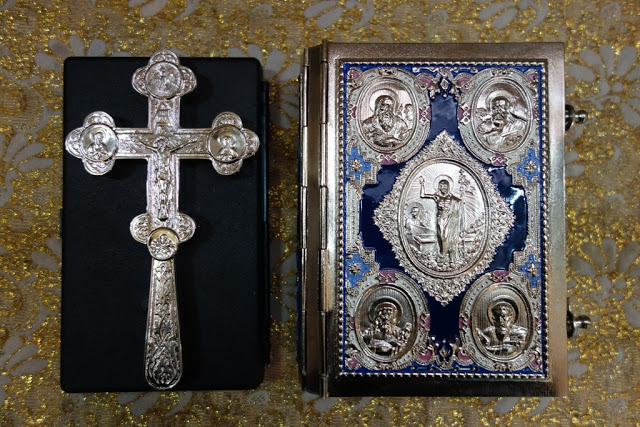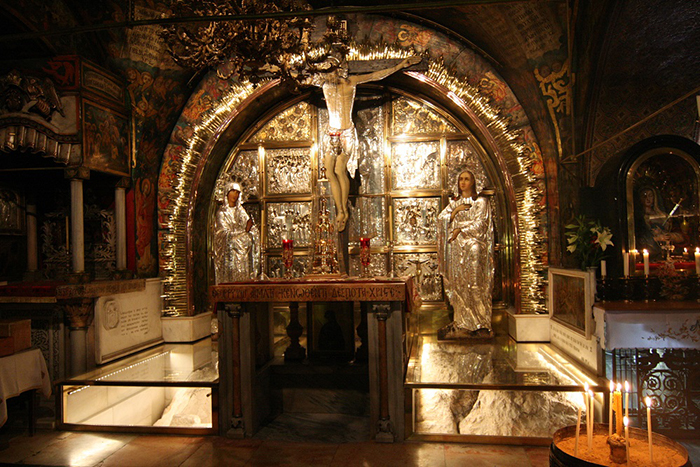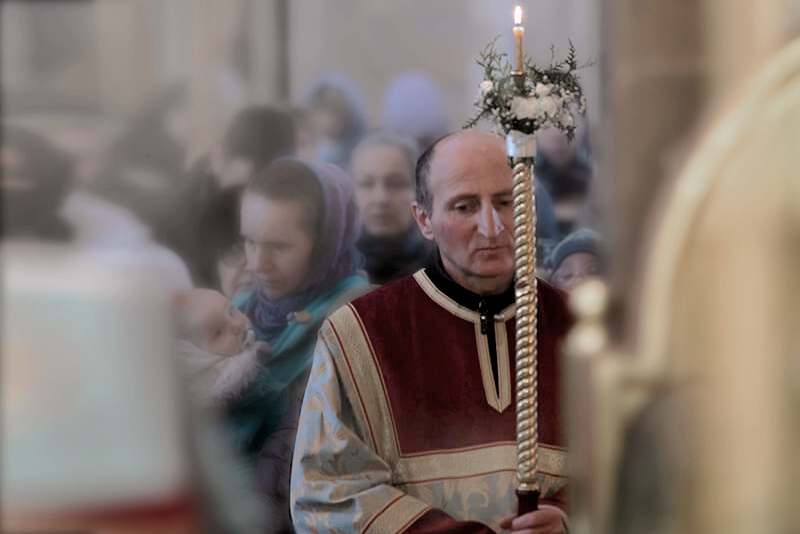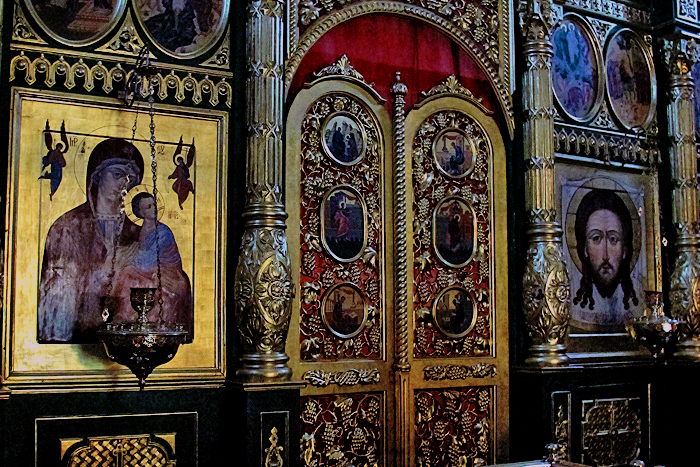
Q: I have heard it argued that the phrase in the Liturgy “A mercy of peace, a sacrifice of praise” is both nonsensical and a corruption of an earlier text. Is this correct, and if not, what does the phrase mean?
A: It is true that there are some textual issues related to this text. There are number of manuscripts that read “Mercy, peace, a sacrifice of praise,” and some argue that this reading makes more sense. However, in an article by Robert Taft on the subject, the oldest text that is cited, is the text of the commentary on the Divine Liturgy by St. Germanus of Constantinople, and it has the reading just as we use it today (Textual Problems in the Diaconal Admonition before the Anaphora in the Byzantine Tradition (Orientalia Christiana Periodica, 49 (1983) 345; St. Germanus of Constantinople, On the Divine Liturgy. Trans. [with Greek parallel text] Paul Meyendorff (Crestwood, NY: St. Vladimir Seminary Press, 1984), p. 90f.), This variant also made its way into the pre-Nikonian Slavonic texts, though since the Nikonian reforms, the mainstream Slavonic texts have followed the standard reading.
The fact that the standard text is criticized as being a more difficult reading is actually an argument in favor of its authenticity. One of the basic principles of textual criticism is that (all things being equal) the harder reading is more likely to be original, and a smoother reading is more likely the result of a later “correction.” If such a “harder reading” were found only in an isolated manuscript here or there, one could perhaps make the case that it was the result of some error in copying — but not when such a reading is the predominant reading.
In any case, whether it was the original reading or not, it is the accepted reading that the Church has embraced. That being the case, suggesting that the text is “nonsensical” reflects both a lack of humility and piety. If the Church has embraced it, it cannot be nonsensical. It may be that it is hard to understand, or that one might not understand it; however, just because a person does not understand what it means, this does not mean that it is incapable of being understood. After all, this is not a line from some obscure text that few would have ever encountered, or would have encountered infrequently. This is a line from the most prominent part of the most prominent service of the Church, which is served almost every day of the year. Consequently, it is unfathomable that such a text could have gained such wide acceptance in the Church had it truly been nonsensical.

Some try to argue that the text, at least as it stands in English, is ungrammatical, because “mercy” is an uncountable noun, and so cannot be used with the indefinite article (“a”). However, if you look up the word “mercy” in Merriam Webster’s dictionary online, one of the examples of how the word is used is “it was a mercy they found her before she froze.” Countless examples of this could be cited from the great works of English literature… and so it is simply not true that this construction is ungrammatical.
As for what this means, keep in mind that this line follows the words of the deacon: “Let us stand well, let us stand with fear, let us attend, that we may offer the holy oblation in peace.” And so, in context, we see that this line is referring to the holy oblation.
Fr. Thomas Hopko provides a concise explanation of what this means:
“The Holy Oblation is Christ, the Son of God who has become the Son of Man in order to offer himself to his Father for the life of the world. In his own person Jesus is the perfect peace offering which alone brings God’s reconciling mercy. This is undoubtedly the meaning of the expression a mercy of peace, which has been a source of confusion for people over the years in all liturgical languages.
In addition to being the perfect peace offering, Jesus is also the only adequate sacrifice of praise which men can offer to God. There is nothing comparable in men to the graciousness of God. There is nothing with which men can worthily thank and praise the Creator. This is so even if men would not be sinners. Thus God himself provides men with their own most perfect sacrifice of praise. The Son of God becomes genuinely human so that human persons could have one of their own nature sufficiently adequate to the holiness and graciousness of God. Again this is Christ, the sacrifice of praise” (The Orthodox Faith, Volume II – Worship: The Divine Liturgy, Eucharistic Canon: Anaphora).





Thank you! This helped me to understand this powerful but to me obscure passage in the liturgy. I liked very much what you wrote about knowing, that the mere fact that we find something obscure does not mean that it is unfathomable. This is our life in the Church: we receive as a gift far more than we could ever do for ourselves alone. And as you showed, others can reveal that which to us is impossible.